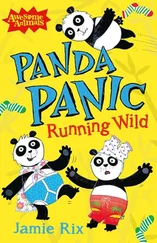Turning down Brighton Fourteenth Street and heading in the direction of the ocean, Frida quickened her pace, head retracted, as this small stretch was more dangerous to traverse than the Bermuda Triangle, rivaling it in terms of bizarre occurrences, not to mention awkward run-ins. It was a block short of the official border between Brighton Beach and the more prosperous Manhattan Beach, and all distant relatives and no-longer-quite-acquaintances had flocked to this fringe, where they could pay reasonable rents while getting wafted by ritzy breezes. Also, the train was almost out of earshot, not so far away that important service announcements couldn’t be heard but at enough of a distance that Grandma didn’t lose her dentures every seven minutes. Frida stumbled past tidy strips of lawn, her favorite with a PLEASE CARB YOUR DOG sign, double-parked Ferraris with needlessly tinted windows, the vacant lot that persisted in being a vacant lot despite its prime location, the homeless guitar band playing classic rock hits (mainly “American Pie” on a loop), and took those sloping concrete steps to the boardwalk, resolved to find a bench, overcome her phone anxieties, and make the call. Why shouldn’t Diane be happy to hear from her? She’d be overjoyed. Incidentally, she was having a little get-together at her place that Friday. It was late notice, Frida probably already had plans, but she was welcome to join. Plans could be scrapped. Frida’s nervousness prior to ringing the doorbell, her stomach cramps, her rapid pulse, would prove for naught. She’d instantly feel comfortable, finding herself in a dimly lit room with beanbag chairs arranged in a rough circle, one empty chair for her to claim, and a carton of red wine (like their parents had at picnics) in the center. Diane was mature, transformed, welcoming. The other beanbag chairs were occupied by youngish intellectual types who exhibited in equal measure Odessa humor, Petersburg interests (sans pretensions), Moscow cosmopolitanism (without the coarseness or hard consonants), and New York transit proficiency; who watched Tarkovsky films and played chess (and would finally succeed in teaching her how); who listened to Pink Floyd and Vysotsky and could recite whole stanzas of Eugene Onegin but never went on too long doing so, choosing instead to dance a little, European style, inside the beanbag fortress; who had jobs in the sciences but whose passions lay in art and literature; who got together every weekend in a casual but never obligatory manner and considered this gang, this kompaniya of theirs, a second family, sort of the way her parents considered their kompaniya. If they emulated the model, what was wrong with that? The model was tried and true. And they weren’t about to emulate blindly. Adaptations would be made. Think of it as the furthering of a tradition. Into the Vysotsky and Mashina Vremeni repertoire, they’d introduce nineties hip-hop, Uzbek rap. Along with Pushkin they’d recite Nasmertov — because surely Frida wouldn’t get the usual stupefied stares when attempting to explain whose niece she was, an excruciating mistake she was determined to repeat whenever given the chance. It was an attempt to bridge a terrible gap, an attempt that invariably proved futile. Within the home Pasha was a world-historical figure grappling with Dostoevskian forces. But the outside world squinted and asked, Pasha who? A poet? As in, they still have those? One reality was bound to triumph to the exclusion of the other. But with the kompaniya she’d just remark offhand that her uncle was the Pavel Nasmertov and they’d gape in awe.
And while the kompaniya was exclusive, Frida would be adopted despite her shortcomings. Her new friends would patiently peel away the layers of timidity, anxiety, acne, and fear, revealing — what, exactly? They would certainly know what, detecting deep within her something worthy of being revealed, something deserving of that grueling peeling work. In the end she’d be unrecognizable. In a good way. It would be the true her, fully realized. People would say, She bloomed late. An example would be made of the transformation. Everyone had taken Frida for a lost cause until suddenly, at the ripe age of twenty-five, she did a 360. Or was it a 180? A total turnaround, regardless. Left behind the field of medicine. A clean break. Never looked back. Lost weight and began parting her hair differently, in a much more becoming fashion, though the difference itself was elusive. Perhaps a creative calling should be involved? She’d been one of the top students in her high school’s acrylic-painting class. The kompaniya would probably encourage a return to that. They would be supportive, nurturing of the very tendencies the rest of the world tried to weed out. They’d let her borrow money when, painting maniacally, she went broke.
This scenario was countered with one of a lackluster reunion in a single-halogen-bulb kitchen with a faded, old-before-her-time Diane, the pauses in conversation accentuated by a child’s wailing in the background — or, worse yet, Diane not faded in the least but as manipulative and snobbish as ever, only more proficient with underhanded techniques of humiliation. It was foggy and blustery on the boardwalk. A gust blew the scrap with the number right out of Frida’s clutch, in a direction that was the opposite of home.
• • •
LAST NIGHT, SAID MARINA, Baba Fira rode into town on a horse.
Were you happy to see her? Frida asked from the backseat.
Levik chauffeured them down Coney Island Avenue, skirting double-parked halal-meat delivery trucks, imprinting the frank façades of nightclubs and funeral homes onto their retinas. He tensed up when Marina touched on the spiritual realm.
You don’t understand, said Marina. You were too young when she died. Baba Fira was always an old lady — desiccated, wrinkled, a fright. From my earliest memories, her back is so hunched that her nose points to the ground. To make it from one room to the next, she pushed a chair in front of her. It took an hour to get from the kitchen to the bathroom, and you can’t imagine the sound. But she must’ve been only fifty at the time. A little later, not much, I somehow got stuck with bedpan duties. The last twenty years of her life, she was practically a corpse. Not a woman you imagine on a horse.
But in the dream she was fine? asked Frida, though the last place she wanted to be was in a car with her parents, analyzing dreams about their grandparents. She put her open mouth to window, as if trying to suck the outside into her lungs.
She was sort of slung over the horse and dangling, like a coat.
You said hello?
I was too busy yelling at you. You were supposed to be accompanying her to make sure she didn’t fall, but instead you were home. She rode into Potemkinskaya all by herself.
Frida looked at the back of her mother’s head, or rather the back of the headrest attached to her mother’s seat, which grew a face and walrus tusks. A moment ago Baba Fira had been riding her horse under the train tracks, galloping past Zuckerman Pharmacy, turning onto Brighton Sixth. The horse, unlike Baba Fira, was large, black, splendid. But evidently the whole time this horse had been riding into central Odessa. Instead of helping her great-grandmother, Frida had been home, a home she didn’t remember and couldn’t imagine. How did she die? she asked.
Levik ran a red light. She was always dead! he shouted. She never died!
Stroke, said Marina. Do you even have to ask? The answer is always stroke.
What about cancer? said Frida.
Levik dropped them off at the banya and went on his way. He had big plans for the day.
A series of practical steps and formal interactions distracted from the conversation, which had settled comfortably on the subject of cancer — who had it, what kind, coping mechanism (Alla Gabor, breast, happy to get new ones, eating only asparagus puree). A silent rule with discussions such as these was that they weren’t returned to. A penny might fall from your pocket and you’d bend down to pick it up, in the process dropping the subject for good.
Читать дальше












